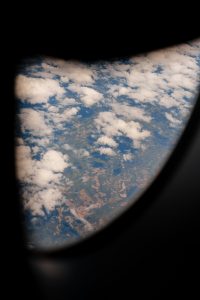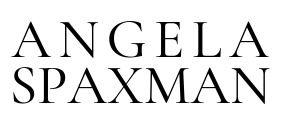On seeing my new tagline, Leadership for a Transforming World, one of my friends asked the obvious question: what does it mean? What kind of leadership are you talking about? And so, let me begin to answer this question.

Photo by Eirik Skarstein on Unsplash
A Transforming World
In all our global systems, from ecology, to economy to politics, our world is transforming. As we reach the limits to growth of any system, the normal way of doing things begins to unravel, then it collapses and we enter a chaotic period of regrouping, the liminal stage, followed by tentative learning and rebuilding until a new system is thriving (temporarily). Whether you think we are experiencing a temporary economic readjustment or the beginning of the collapse of global ecosystems with modern civilization along with it, either way the world is transforming. My view is that many systems that we have come to rely on are falling apart.
One of the most convincing bits of research that supports me in this view I learned from the book ‘Breaking Together: A Freedom-loving Response to Collapse’ by Jem Bendell. The Human Development Index is a measure used by the United Nations since 1990 to evaluate overall human well-being in countries across the world. This index uses data like life expectancy, adult education levels and standard of living to indicate how well we are meeting human needs and aspirations. Since 2019 (before the pandemic) the index has shifted from a slow and steady rise to a marked decline. This data is backed up by other ‘quality of life’ measures that reveal widespread declines since 2016. Explanations and more evidence for this end-of-an-era change are persuasive. The world has a new trajectory.
It is not easy to take in this ominous reality. Reading that book by Jem Bendell was a difficult process, requiring me to skip past many gruesome details when I found the emotional impact too high for me. And in my stage of life and role as a leadership coach, I feel I must be clear about this situation with myself and my clients. Each of us has our own limit in what we can take in and respond to. I do not intend to shock people into anger or apathy. I want to empower myself and others to keep moving and thriving amid the forces of change that are much bigger than us.
In summary, this phrase ‘a transforming world’ is a polite way to point to the whole process of perilous planetary change that is unavoidably upon us.
What Kind of Leadership Do We Need?
Since I immersed myself in the field of leadership in the mid-2000s, I have been following this question. The study of leadership over these decades has revealed a clear picture of the kind of leader who can be effective in producing economically sound organizations. Despite this clarity and the time and money invested in leadership development, truly effective leadership is still relatively rare. We are much more familiar with the brutally ineffective leaders who tend to dominate the headlines. More importantly, the kind of leaders who can help to navigate the radical disruptions that are upon us are even more rare and invisible.
In brief, the kind of leadership we most need now is non-heroic. These leaders do not draw attention to themselves unnecessarily. They do not concentrate power but share leadership. They act from a stance of love in service to broadly defined stakeholders. Although there are theories and studies about who and what this kind of leadership is, we cannot know for sure. As a very famous leadership coach has said, “what got you here won’t get you there.” The answers to what we need are unfolding in real time.
From Absence to Presence
One of the foundational capacities for non-heroic leadership is emotional intelligence. EQ means the capacity to know and manage our own emotions, plus to know and influence others’ emotions. Our society has made a mistake by prioritizing managing emotions over knowing them. As a result, most of our leaders cannot feel. The intelligence of emotions is not available to them, as they mistakenly believe they cannot feel without losing control. They are cut off from themselves, from others and from the world. Out of touch with their own limits, they drive themselves too hard. They create organizational systems that do not care for people. Their business models are blind to the unsustainable impacts of their operations. This absence is fully normal in modern businesses.
When leaders develop their EQ, particularly the ability to feel emotions, they gain access to a suite of other essential capacities. They access courage, humility, greater insight and intuition. The capacity to hear wide perspectives and empathize makes it possible for them to create social coherence and aligned trust in diverse groups. Their inner connectedness brings resilience in the face of loss, and optimism in an unknown future. These powers of presence are essential to reduce suffering in a world that is falling apart.
My Offer
To change the way you and I lead requires kindness, empathy, non-judgmental understanding, and willingness to feel pain and follow passion. This is what I am up for. With 24 years of experience as a coach, and having focused on developing empathy and intuition since 2019, through personal development, coaching practice and spiritual practice, I am grateful to be able to offer safe spaces to leaders who are willing to change themselves in response to the needs of our transforming world.
